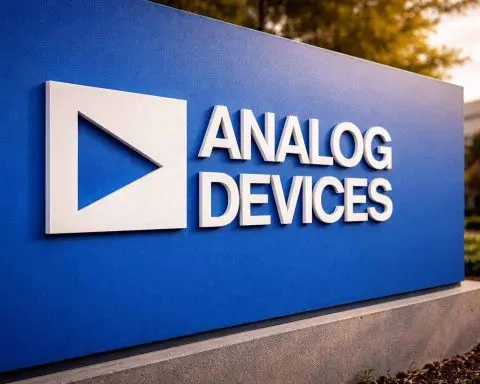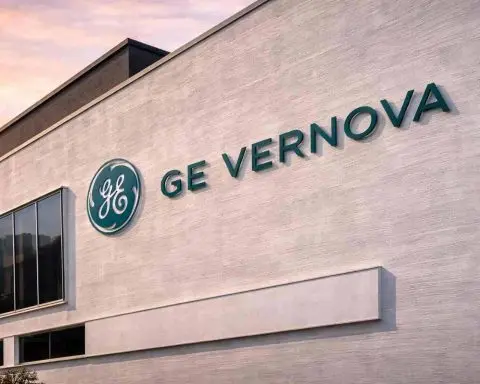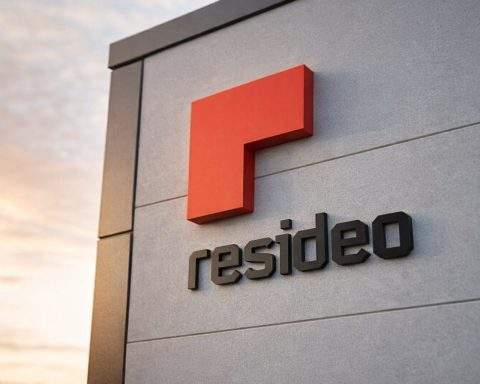- Meta says its latest AI systems are beginning to improve themselves without human intervention, a step Mark Zuckerberg called toward artificial superintelligence, with a policy memo noting “glimpses” of self-improvement.
- Zhipu (Z AI) open-sourced GLM-4.5, a 355-billion-parameter model built on mixture-of-experts, ranking third globally on reasoning and coding benchmarks, as China reports over 1,500 domestically developed large AI models.
- Google pledged $9 billion to expand its U.S. AI infrastructure, including a new data center campus in Oklahoma, raising annual capex to $85 billion and committing $1 billion for AI training in more than 100 U.S. colleges.
- Cisco reported $2 billion in AI-focused product orders for FY2025, while Foxconn posted a 27% quarterly profit surge driven by AI servers, with AI server sales up 170% year-over-year and new factories planned in Mexico and Texas to produce Nvidia-based hardware, plus repurposing an Ohio facility.
- Lenovo posted Q1 revenue of $18.8 billion, up 22%, with net income up more than 100% and over 30% of its PCs now shipping with dedicated AI features under a “hybrid AI” strategy.
- Oracle Health unveiled a “voice-first” AI-powered EHR on August 14, 2025, enabling doctors to retrieve and input data via voice and planning expansion to hospitals by 2026.
- Perplexity AI made a $34.5 billion all-cash bid to acquire Google’s Chrome browser on August 13, 2025, signaling fierce AI-search competition despite analyst skepticism.
- Anthropic acquired Humanloop’s core team on August 13, 2025, bringing the co-founders and about a dozen engineers to bolster enterprise safety and monitoring.
- In the Musk-OpenAI case, a U.S. judge denied Musk’s bid to dismiss OpenAI’s harassment claims, setting a jury trial for spring 2026.
- Regulatory momentum includes the EU adhering to the AI Act timetable with August 2025 baselines and 2026 high-risk rules, the U.S. Senate voting 99-1 to lift a proposed 10-year ban on state AI regulation, and governance moves such as Sam Altman co-chairing the Artificial Intelligence Ethics Council with Robert Silvers joining, plus China launching an International AI Organization at the World AI Conference.
Research Breakthroughs & Self-Improving AI
Meta’s AI Shows Signs of Self-Learning: Facebook parent Meta revealed that its latest AI systems “are beginning to improve themselves without human intervention,” a development CEO Mark Zuckerberg hailed as “the first step towards achieving artificial superintelligence” uz.kursiv.media. In a policy memo, Zuckerberg noted “glimpses” of self-improvement – “slow for now, but undeniable” – emerging in recent months uz.kursiv.media. While optimistic about AI’s potential, he warned Meta will no longer openly release its most powerful models, tightening controls to manage risks uz.kursiv.media. This cautious stance comes as academia and industry race to build AIs that can rewrite their own code (a UCSB team’s Gödel self-editing agent was cited as an early example) uz.kursiv.media, fueling debates on how to safely shepherd AI toward greater autonomy.
China’s Open-Source AI Milestone: Across the Pacific, China’s AI sector notched a major achievement with startup Zhipu (Z AI) open-sourcing GLM-4.5, a colossal language model boasting 355 billion parameters computerworld.com. Built on a mixture-of-experts architecture, GLM-4.5 integrates “agentic” reasoning and action capabilities, enabling it to autonomously perform multi-step tasks and complex data visualization computerworld.com. The model ranked third globally on a suite of reasoning and coding benchmarks – the highest of any open-source model computerworld.com. Analysts say this underscores China’s rapid progress, with over 1,500 large AI models now developed domestically computerworld.com. Zhipu’s model, requiring relatively few high-end chips to run, offers a low-cost alternative to Western proprietary systems and reflects China’s push to “broaden strategic choices for global enterprises” via open AI solutions computerworld.com computerworld.com. However, its rise also raises national security and ethics questions around deploying non-Western AI platforms amid an emerging “AI cold war” climate computerworld.com.
Big Tech Bets on AI Infrastructure
Google’s $9B AI Infrastructure Pledge: Alphabet’s Google announced a massive $9 billion investment to expand its U.S. data center footprint for AI and cloud services reuters.com. The company will build a new data center campus in Oklahoma and enlarge an existing facility to boost AI computing capacity, alongside new education and workforce training programs reuters.com. This comes after Google upped its annual capital expenditures plan to $85 billion (from $75B) to meet surging AI demand reuters.com. Tech giants are justifying such eye-popping spend as essential “fuel” for AI growth amid fierce global competition reuters.com. Indeed, Google last week also committed $1 billion for AI training in universities and nonprofits, with over 100 U.S. colleges already on board reuters.com. Rival firms like OpenAI, Anthropic and Amazon have launched similar education initiatives, underscoring the race to cultivate AI talent and public goodwill reuters.com.
Cisco & Foxconn Ride the AI Wave: Networking leader Cisco beat expectations and projected upbeat revenues, crediting an “artificial intelligence boom” for a flood of new hardware orders reuters.com. “There is incremental spending to beef up infrastructure to accommodate AI,” noted one analyst, and Cisco reported its AI-focused product orders hit $2 billion for FY2025 – more than double the original target reuters.com. CEO Chuck Robbins said cloud giants like Microsoft, Amazon and Google have spent heavily to relieve capacity bottlenecks for AI workloads reuters.com. Cisco is positioning to supply upcoming “sovereign AI” data centers, partnering with Saudi Arabia’s state-backed AI firm and others to build out national infrastructure reuters.com.
Electronics manufacturing titan Foxconn likewise posted a 27% surge in quarterly profit, largely thanks to “robust demand for artificial intelligence servers,” which it expects to keep climbing reuters.com reuters.com. The Taiwanese firm – known as Apple’s top iPhone assembler – revealed that for the first time its revenue from cloud and networking gear (including AI server hardware) exceeded its smartphone business reuters.com. AI server sales are on track to jump 170% year-on-year as cloud providers like Amazon, Microsoft and Google pour billions into data centers reuters.com. To capitalize, Foxconn is building new factories in Mexico and Texas to produce AI servers for Nvidia, and it recently partnered with industrial manufacturer TECO to co-develop data centers reuters.com reuters.com. These moves show Foxconn pivoting aggressively toward AI infrastructure, even repurposing an Ohio facility (originally bought for EV production) to now make cloud-computing hardware reuters.com. Executives are bullish, but caution that geopolitical uncertainties – from U.S.-China trade tensions to export controls on high-end chips – could pose headwinds even as AI demand stays hot reuters.com reuters.com.
Lenovo’s “Hybrid AI” Windfall: PC maker Lenovo reported record results driven by its embrace of what CEO Yuanqing Yang calls a “hybrid AI strategy.” The company’s fiscal Q1 revenue jumped 22% (to $18.8B) with net income up over 100%, as every business unit saw double-digit growth news.lenovo.com news.lenovo.com. Lenovo credited three factors: relentless R&D investment (boosting AI capabilities in both cloud and devices), operational agility amid supply chain challenges, and a clear vision of integrating AI across its product lines news.lenovo.com. Notably, over 30% of Lenovo PCs shipped now contain dedicated AI features, and the firm leads the global market for “AI PC” devices that include on-board AI co-processors news.lenovo.com. Yang highlighted the company’s focus on “personal AI and enterprise AI” – from smart, AI-enhanced laptops to data center solutions – calling it a quest for “Smarter AI for all” in the coming era news.lenovo.com. By “firmly executing our hybrid AI strategy” and building “agent-native” devices and services, Lenovo aims to sustain its growth while navigating tariff volatility and geopolitical risks, Yang said news.lenovo.com. The strong quarter underscores how even hardware-focused firms are reinventing themselves around AI, blending cloud intelligence with edge devices to maintain a competitive edge.
New AI Products, Startups & Mega-Deals
Oracle’s “Voice-First” AI Health Record: Oracle Health made waves by launching an AI-powered electronic health record (EHR) system that replaces clicks with conversation. Unveiled on Aug. 14, the new cloud-based EHR lets doctors retrieve and input information via voice commands, using AI “agent” assistants to surface patient data and suggest next steps in real time chiefhealthcareexecutive.com chiefhealthcareexecutive.com. Oracle calls it a “voice-first” redesign aimed at cutting tedious documentation work for clinicians. “Our agents act as smart assistants… enabling clinicians to remain in control,” explained Oracle Health EVP Seema Verma, who touted the system as “the future of intelligent care, where our healthcare providers are freed from technical baggage so they can focus on caring” chiefhealthcareexecutive.com. Initially rolling out to physician groups in the U.S., the AI-driven EHR will expand to hospitals by 2026 and was built with input from doctors to ensure its AI suggestions are accurate and relevant chiefhealthcareexecutive.com chiefhealthcareexecutive.com. The move puts Oracle – which acquired medical records giant Cerner in 2022 – at the forefront of applying generative AI in healthcare, promising to ease burnout by turning EHRs into more intuitive, voice-guided support systems.
Startups & Bids: In a headline-grabbing play, San Francisco-based Perplexity AI made a $34.5 billion unsolicited bid to acquire Google’s Chrome web browser reuters.com. The audacious all-cash offer, revealed on Aug. 13, vastly exceeds Perplexity’s own valuation and was seen as a moonshot attempt to instantly gain Chrome’s billions of users as a springboard in the AI-powered search race reuters.com. While analysts viewed the bid as unlikely to succeed (especially amid Google’s ongoing antitrust battles), it underscores how startup challengers are trying imaginative tactics to compete with Big Tech’s distribution advantages. “Perplexity reaches for [Chrome’s] pivotal users” to disrupt Google’s dominance, Reuters noted, calling the bid a sign of the high stakes in AI search reuters.com. The gambit comes as generative AI upends the search market – with chatbots answering queries – prompting smaller players to seek any edge in competing with Google’s entrenched products.
Meanwhile, AI powerhouse Anthropic bolstered its team by acqui-hiring the core team of Humanloop, a London-based startup known for its AI prompt-tuning and model evaluation tools theaiinsider.tech. The deal, disclosed Aug. 13, brings Humanloop’s co-founders (and a dozen engineers) into Anthropic to strengthen its enterprise AI safety and monitoring capabilities theaiinsider.tech. Humanloop’s existing product and IP were not bought, but its expertise in prompt management, evaluation, and compliance aligns with Anthropic’s “safety-first” mission of building reliable AI systems for businesses and governments theaiinsider.tech. Founded out of UCL in 2020, Humanloop had served customers like Duolingo and was respected for tools that help developers audit and refine language model outputs theaiinsider.tech. Now integrated into Anthropic, the team will help implement more robust evaluation pipelines as Anthropic rolls out advanced features (longer context, coding assistants, etc.) and courts enterprise clients.
In other venture news, OpenAI CEO Sam Altman is reportedly co-founding a new brain-computer interface startup called Merge Labs, valuing the early-stage venture at around $850 million theaiinsider.tech. According to sources in the Financial Times, Altman has teamed with Alex Blania (of Worldcoin fame) to pursue “The Merge” – merging human and machine intelligence – directly competing with Elon Musk’s Neuralink theaiinsider.tech theaiinsider.tech. Merge Labs would develop implantable or wearable neural devices, an area Musk has invested heavily in (Neuralink raised $600M at a $9B valuation) theaiinsider.tech. The prospect of Altman entering the neurotech arena has industry watchers buzzing, as it could pit two of tech’s biggest personalities in a race to augment human cognition with AI. While details are scant and funding from OpenAI’s own venture arm is only tentative, Altman’s long-standing interest in human–AI symbiosis suggests this space may be the next frontier in the AI revolution theaiinsider.tech.
AI Governance, Regulation & Ethics
Musk vs. OpenAI Legal Feud: A courtroom clash between Elon Musk and OpenAI escalated as a U.S. judge denied Musk’s bid to dismiss OpenAI’s harassment claims against him reuters.com. OpenAI – the company Musk co-founded then left in 2018 – has accused Musk of waging a “years-long harassment campaign” to undermine it, including public attacks, legal threats, and even a “sham” offer to buy the company’s assets reuters.com reuters.com. Musk had earlier sued OpenAI over its shift from non-profit to capped-profit, claiming it betrayed its founding mission reuters.com. OpenAI countersued in April, alleging Musk’s barrage of negative press and meddling was an attempt to stifle competition. This week’s ruling means Musk must face those allegations in court, as the judge found OpenAI’s claims legally sufficient to proceed reuters.com reuters.com. A jury trial is set for spring 2026 reuters.com. The legal battle lays bare the bad blood between Musk and the now-leading AI lab; beyond the personal drama, it raises questions about the governance of AI organizations and the tensions between profit motives and altruistic ideals. With one of tech’s most outspoken figures on one side and the maker of ChatGPT on the other, the case encapsulates the broader ethical debate over AI’s direction – whether it should be controlled by a few or developed openly for humanity’s benefit.
Departures Highlight AI Safety Priorities: At Musk’s own AI startup, xAI, co-founder Igor Babuschkin resigned to launch an investment firm focused on AI safety research reuters.com. Babuschkin, a respected researcher who previously worked at DeepMind and OpenAI, announced on Aug. 13, “Today was my last day at xAI,” and unveiled his new venture (“Babuschkin Ventures”) aimed at backing startups working on AI alignment and risk reduction reuters.com. He recounted how at xAI’s outset he built many foundational tools for model training and infrastructure reuters.com, but his exit – following the recent departure of xAI’s legal chief – hints at turbulence as Musk’s fledgling lab competes with more established players reuters.com. Musk founded xAI in 2023 with grand claims of building safer, “truth-seeking” AI, but Babuschkin’s pivot to an explicitly safety-focused fund suggests some insiders feel a dedicated approach is needed. His move aligns with a broader trend of AI experts gravitating toward AI ethics and safety initiatives, amid growing concern that cutting-edge AI needs strong guardrails.
Global Regulation: Europe and US Shifts: Policymakers are scrambling to keep up with the fast-evolving AI landscape. In Brussels, the EU confirmed it is sticking to its strict AI Act timeline, pointedly dismissing calls for a pause in new regulations reuters.com. “Let me be as clear as possible, there is no stop the clock. There is no grace period. There is no pause,” European Commission spokesperson Thomas Regnier said, rebuffing open letters from some tech CEOs to delay implementation reuters.com. Key provisions of the EU AI Act have already begun to kick in – including rules for foundation models from August 2025 – with additional requirements on “high-risk” AI slated for 2026 reuters.com. Despite industry lobbying about compliance costs, the EU is pressing ahead to enforce transparency and safety guardrails on AI systems reuters.com, reinforcing its role as the world’s AI watchdog.
In the United States, a notable policy shift occurred when the Senate voted 99–1 in July to remove a proposed 10-year ban on state-level AI regulation, effectively greenlighting U.S. states to craft their own AI rules conference-board.org pbs.org. This reversal – spurred by bipartisan concerns that an AI regulation moratorium went too far – means tech companies could now face a patchwork of state AI laws. It also highlights growing appetite among lawmakers to address issues like algorithmic bias, transparency and consumer protection, even as federal AI legislation lags. Advocacy groups praised the Senate’s move as “upholding states’ role” in guarding against AI harms advocacy.consumerreports.org. In parallel, the White House has been convening AI companies and issuing voluntary AI safety commitments, signaling that more formal U.S. regulation is on the horizon.
Ethics Councils and Cooperation: Within the industry, new coalitions are forming to guide AI’s ethical development. Sam Altman, OpenAI’s CEO, co-chairs a global Artificial Intelligence Ethics Council (AIEC), which this week added former U.S. cybersecurity chief Robert Silvers to its board ropesgray.com. Altman and entrepreneur John Hope Bryant launched the AIEC in 2023 to rally experts around “safe, secure, and ethical” AI development and deployment ropesgray.com. The council’s mission is to identify emerging ethical dilemmas and ensure AI’s benefits “can be enjoyed by as many as possible while mitigating risks” ropesgray.com. Silvers’ appointment – he’s a former DHS official experienced in cyber policy – is meant to strengthen the group’s governance chops as it advises on issues from bias and transparency to AI’s impact on jobs. This reflects a wider trend of tech leaders seeking external guidance and multi-stakeholder oversight to balance innovation with responsibility.
Internationally, cooperation was a theme at the World AI Conference in Shanghai, where China officially launched an International AI Organization to coordinate global AI norms and ethics theaitrack.com. Billed as a new “World AI Cooperation Organization,” the body is envisioned as an “international public good” to align AI governance efforts across countries pandaily.com. It aims to set shared standards, promote responsible AI development, and ensure equitable access to AI technologies tecknexus.com. The initiative dovetails with China’s release of a Global AI Governance Action Plan in late July ansi.org, just days after the Biden administration secured voluntary safety pledges from leading AI firms. While details remain sparse, these moves signal that both East and West recognize the need for forums beyond national borders to tackle AI’s ethical and security challenges. From Silicon Valley boardrooms to Brussels and Beijing, the debate over how to regulate AI – without stifling innovation – took on new urgency during this period, marking August 2025 as a pivotal moment in the global conversation on AI governance reuters.com ropesgray.com.
Sources: The information above is drawn from an array of reputable news outlets, industry statements, and expert analyses published during the August 13–14, 2025 timeframe. Key sources include Reuters news reports on corporate earnings and legal developments reuters.com reuters.com, official press releases (e.g. Lenovo’s financial report news.lenovo.com and Oracle’s product announcement chiefhealthcareexecutive.com), and specialized tech media like The AI Insider and Computerworld for details on research milestones computerworld.com theaiinsider.tech. Quotes and insights from industry leaders (Mark Zuckerberg, Seema Verma, Sam Altman, etc.) and analysts have been included to provide perspective and are cited to their original sources for verification. This comprehensive roundup encapsulates a whirlwind 48 hours in AI – highlighting how rapidly the field is advancing, the enormous bets being placed on its future, and the intensifying efforts worldwide to steer it in a safe and beneficial direction. uz.kursiv.media reuters.com









